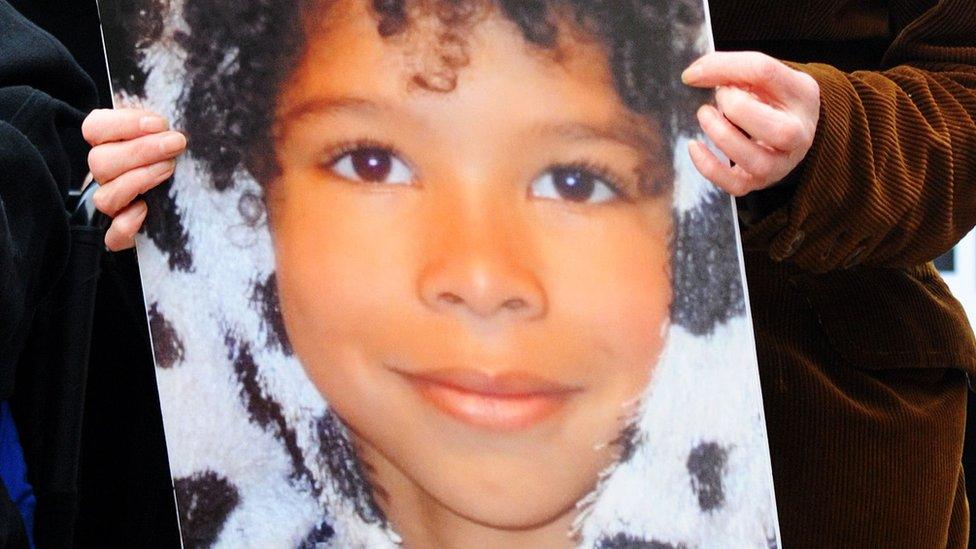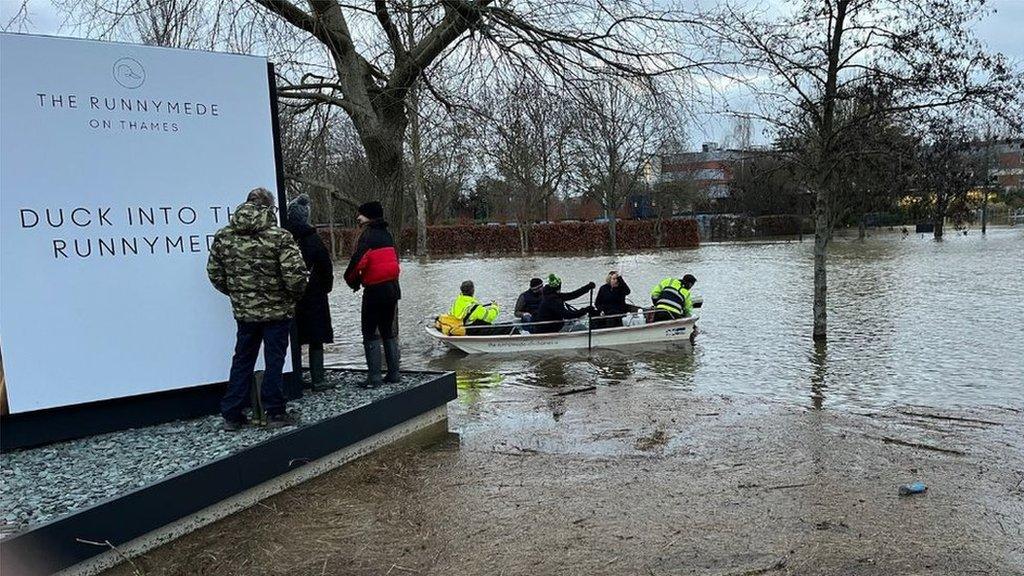Zane Gbangbola: Council votes on new law amid landfill concerns
- Published

Zane Gbangbola died 10 years ago during severe Thames flooding
A Sussex council has been asked to back a proposed new law to ensure greater transparency over contaminated land.
The law is named after Zane Gbangbola, a seven-year-old boy whose parents say he was killed by gas from landfill when the River Thames flooded in 2014.
Zane's Law calls for measures including that councils keep public registers of contaminated sites. A motion, external will go before Lewes council on Monday.
The government said its thoughts remained with the Gbangbola family.
The motion states that current UK regulations are "dangerously inadequate".
It has been submitted by Green Party councillor Imogen Makepeace, who said her group hoped Lewes council would pave the way "for more local authorities to take up the call".
Zane's father, Kye Gbangbola, welcomed the move and said: "Landfill can be dangerous to local communities.
"The almost complete lack of transparency around where these [sites] are, and what's in them, means that most people are completely unaware of the danger."
Mr Gbangbola and Zane's mother, Nicole Lawler, have said when they bought their Chertsey house, no environmental searches identified the field behind the property was a former landfill site, and this only came to light after their son had died.

Zane's parents, Nicole Lawler and Kye Gbangbola, have said they are still fighting for truth
An inquest into Zane's death concluded he was killed by carbon monoxide from a petrol pump used to clear floodwater from his home in Thameside, Surrey, but Mr Gbangbola and Ms Lawler say the petrol pump was not used.
The family have said toxic hydrogen cyanide gas from the tip killed Zane and left his father paralysed in the same incident.
They have accessed public health documents that stated firefighters found hydrogen cyanide in their home, but no carbon monoxide.
A spokesman for the coroner said an "independent, full, frank and fearless inquest" was concluded in September 2016.
After the Thames flooded again this year, the couple had to leave their home, weeks before the 10th anniversary of Zane's death. They have said the land remains unsafe and a decade on they are still fighting for the truth.
Ms Makepeace said: "Many thousands of people live near such potentially dangerous former landfill sites and are entirely unaware of the risks they pose."
Her motion asks the council to write to the prime minister, health secretary and environment secretary to express support for new legislation based on the principles of Zane's Law.
It asks ministers to support former Green Party leader Baroness Natalie Bennett in her bid to advance Zane's Law and asks the government to fund councils to meet the requirements of any new legislation.
The BBC approached Defra, the Environment Agency, the Department of Health and the Prime Minister's office for comment.
A government spokesperson responded: "This is a tragic case and our thoughts remain with the Gbangbola family. Throughout the inquest the Environment Agency provided detailed evidence to assist the independent coroner in reaching his conclusions."

Follow BBC South East on Facebook, external, on X, external, and on Instagram, external. Send your story ideas to southeasttoday@bbc.co.uk, external.
- Published8 February 2024

- Published9 January 2024

- Published6 August 2020

- Published12 February 2020

- Published11 October 2019
